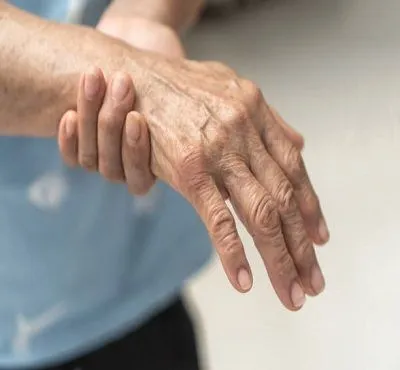We do not request reimbursement of costs
(such as repayment for obtaining medical records)
from veterans nor from people who suffer from multiple sclerosis.
- Call today for a free evaluation
- 1-888-774-7243
Peripheral Autonomic Neuropathy
The term peripheral autonomic neuropathy is used to describe a wide range of medical conditions caused by damage to the nerves situated outside the brain and spinal cord. When this specialized network of nerves is damaged, it disrupts their ability to communicate with the rest of the body. Autonomic nerves control body functions like digestion, respiration and heart rate. The condition, also known as peripheral neuritis and polyneuropathy, afflicts more than 20 million Americans.
What is Peripheral Autonomic Neuropathy?
 Peripheral Autonomic Neuropathy occurs when the nerves that control the body’s involuntary functions are damaged. Along with bladder and bowel control, interference with the electrical signals sent between the brain and the other organs adversely affects blood pressure, digestion and temperature regulation. While diabetes is one of the most common causes of peripheral autonomic neuropathy, the condition may result from other disorders, including an infection or an adverse drug interaction. The disorder can also result from an injury, surgery or alcohol abuse. Peripheral autonomic neuropathy occurs in patients with Guillain-Barre syndrome, AIDS, multiple sclerosis and Parkinson’s disease. Advancing age is also a potential risk factor for developing the disorder.
Peripheral Autonomic Neuropathy occurs when the nerves that control the body’s involuntary functions are damaged. Along with bladder and bowel control, interference with the electrical signals sent between the brain and the other organs adversely affects blood pressure, digestion and temperature regulation. While diabetes is one of the most common causes of peripheral autonomic neuropathy, the condition may result from other disorders, including an infection or an adverse drug interaction. The disorder can also result from an injury, surgery or alcohol abuse. Peripheral autonomic neuropathy occurs in patients with Guillain-Barre syndrome, AIDS, multiple sclerosis and Parkinson’s disease. Advancing age is also a potential risk factor for developing the disorder.
The type and severity of symptoms can vary significantly between patients as well as the various stages of the disease. Common symptoms include dizziness, fainting, nausea, vomiting and diarrhea. Those afflicted with the disease may also experience abnormal sweating and heart rates as well as difficulty digesting food. The disorder is considered a lifelong ailment because it is seldom possible to reverse nerve damage. As a result, treatments and therapies are designed to help patients manage their symptoms and prevent future complications. If left untreated the condition may result in muscle atrophy, tissue damage and the loss of nervous system functions.
Getting Disability for Peripheral Autonomic Neuropathy
Regardless of the cause, autonomic neuropathy is a debilitating condition. The disorder can affect every aspect of the patient’s life, as it can severely limit the ability to stand, walk, lift and carry items. The Social Security Administration (SSA) lists peripheral neuropathy under Sections 9.08 and 11.14 in the Blue Book. The first section covers diabetes-related neuropathy, and the second covers general neurological system disorders. When evaluating an application for disability, the SSA considers your disease and its underlying cause as well as your ability to perform meaningful work. You must provide documentation, including a medical diagnosis with supporting test results as evidence that your neuropathy is severe enough to restrict your ability to engage in substantial work activities. The Blue Book guidelines include the requirement that applicants experience tremors, paralysis and impaired muscle coordination that prevent fine and gross physical movements in two or more limbs. Depending upon the severity of the illness, you may qualify for full benefits or a medical vocational allowance.
Get Help from an Attorney
If you or a loved one suffers from peripheral autonomic neuropathy, you should work closely with knowledgeable health care professionals and an experienced disability lawyers in florida. This skilled assistance will help ensure that you get the treatment and benefits that you deserve. Our team will help you assemble the necessary documents to substantiate your disability claim, which ensures that your application makes a compelling case for benefits. As experienced SSA lawyers and your advocates, we can also handle the appeals process if you have been denied benefits in the past. Contact our office to schedule a consultation to review your case and discuss possible courses of action based on your particular situation.
For a Free Evaluation
Monday : 9am–5pm
Tuesday : 9am–5pm
Wednesday : 9am–5pm
Thursday : 9am–5pm
Friday : 9am–5pm
Saturday : Closed
Sunday :Closed

